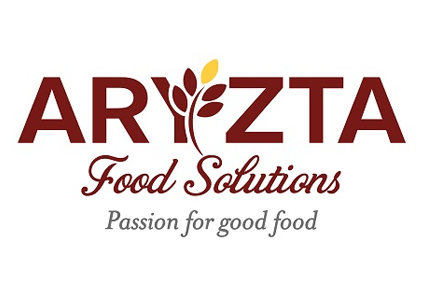It has been clear for months there are some sizeable challenges facing ARYZTA, the Swiss-Irish bakery giant – and there were signs this week the company’s problems persist.
In January, the Zurich-headquartered business slashed its earnings guidance for its 2018 financial year, amid problems in the US (a challenging market for the business for some time) and Europe.
However, that profit warning only heightened that anxiety; the market has been uneasy about the performance of Aryzta for around two-and-a-half years.
Those concerns deepened on Thursday (24 May) when Aryzta issued another profit warning on the back of a 16% decline in third-quarter revenue, sending its shares tumbling by more than 25%.
Management, led by CEO Kevin Toland, who joined Aryzta last summer, has reacted by drawing up plans to cut EUR200m (US$233.8m) in costs at the company over the next three years. That comes on top of an asset disposal programme already formulated and underway – and which has led to a series of businesses being offloaded.
On a call with management on Thursday, there was some exasperation among those analysts covering Aryzta at the latest profit warning and at the company’s statements about continued problems in North America and Europe.

US Tariffs are shifting - will you react or anticipate?
Don’t let policy changes catch you off guard. Stay proactive with real-time data and expert analysis.
By GlobalDataWarren Ackerman, an analyst covering Aryzta for Societe Generale, told Toland he was “struggling a little bit to see another reason for the double-digit downgrade”.
Ackerman said: “I’m still a bit surprised that you’re still saying that you’re underestimating the challenges in the group. All the factors that you’re flagging today are the same factors as we’ve heard before.”
Toland responded: “We clearly have some very, very strong headwinds facing us in terms of cost inflation, particularly around labour and distribution. And we have been seeking to contain that and offset it by further cost efficiencies across the network.”
Aryzta, like many food companies operating in the US, has been confronted with pressure from high logistics and distribution costs. It is an industry-wide problem and, to some extent, Aryzta should not be overly criticised for that bucket of costs affecting the business.
Elsewhere, Aryzta is also facing a surge in butter prices and, again, the company is not alone in seeing that pressure.
However, there will be questions asked in the investment community about Aryzta’s inability to push its prices in North America up to the levels it had thought it could.
And two profit warnings in four months is hardly going to breed confidence in the company and the ability of its management to improve its performance.
Moreover, in the face of the fresh profit warning, there is also some worry about Aryzta hitting its debt covenants. The company insists it will not breach the covenants and said on Thursday it does not need to sell its 49% stake in French frozen-food retailer Picard to avoid that scenario, although a disposal of those shares will go some way to improving investor confidence.
There is some disappointment Aryzta has yet to sell its interest in Picard, a shareholding acquired in 2015 and a move questioned by some in the investment community almost ever since.
Alain Oberhuber, a consumer goods analyst and CEO at MainFirst Schweiz, believes Picard is “unlikely to be sold at an acceptable price” in the company’s current fiscal year, which runs until the end of June.
“It looks like the divestment of Picard takes longer than expected and will occur later than fiscal year 2018. This was one of the key elements of our investment case,” Oberhuber said in a note to clients yesterday.
He added: “In terms of the balance sheet, covenants for fiscal year 2018 will not be breached but fiscal year 2019 looks challenging to reach.”
And in a note to clients in the wake of Aryzta’s third-quarter trading update and fresh profit warning, Jon Cox, an analyst covering the company for French finance house Kepler Cheuvreux, said: “The reputation of the new management team, which had looked strong as it has been in place for less than 12 months, takes another hit with a second profit warning this year. Given the multiple uncertainties, we see the stock as uninvestable currently.”
This week’s surprise announcement from Aryzta has not wiped out investor confidence in Toland and his new management team. There is still some patience in the investment community. And the company has been buffeted by some industry-wide pressures.
However, Aryzta’s full-year results – and, more pertinently, Toland’s outlook for the company’s new financial year – will be scrutinised when the group next comes to the market in October.





